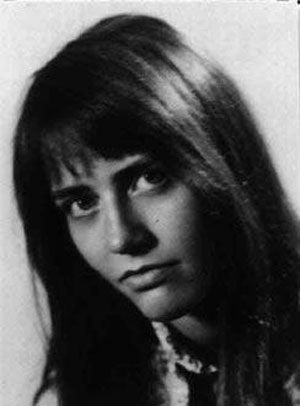Argentina jails 'dirty war' officers accused over killing of German girl

Your support helps us to tell the story
From reproductive rights to climate change to Big Tech, The Independent is on the ground when the story is developing. Whether it's investigating the financials of Elon Musk's pro-Trump PAC or producing our latest documentary, 'The A Word', which shines a light on the American women fighting for reproductive rights, we know how important it is to parse out the facts from the messaging.
At such a critical moment in US history, we need reporters on the ground. Your donation allows us to keep sending journalists to speak to both sides of the story.
The Independent is trusted by Americans across the entire political spectrum. And unlike many other quality news outlets, we choose not to lock Americans out of our reporting and analysis with paywalls. We believe quality journalism should be available to everyone, paid for by those who can afford it.
Your support makes all the difference.Argentina has jailed two ageing former army officers for life for their role in the country's infamous "dirty war" of the 1970s, ending a long-running torture and murder case which has also led to charges of shameful inaction being levelled at the German government for over 30 years.
Some 30,000 opponents of Argentina's dictatorship were kidnapped, tortured and killed by armed forces members loyal to the military junta during the late 1970s. Thousands of those rounded up still remain "missing" and an amnesty for culprits was only lifted in 2003, enabling prosecution.
Two of those responsible for the purges were finally brought to justice on Thursday when a Buenos Aires court convicted retired General Hector Gamen, 84, and Colonel Hugo Pascarelli, 81, of committing crimes against humanity at the feared "El Vesubio" prison, where 2,500 "subversives" were tortured between 1976 and 1978.
Their case has aroused particular interest in Germany, because one of their victims was Elisabeth Käsemann, the 30-year-old daughter of theologian, Ernst Käsemann. Her body was found riddled with shot wounds fired at point blank range in the spring of 1977.
Her murder by the junta's henchmen has for decades provoked charges that former German Chancellor Helmut Schmidt's Social Democrat-led government did virtually nothing to secure her release, although other countries managed to extradite nationals in a similar predicament.
In a belated attempt to make amends, lawyers for the German government appeared as co-plaintiffs at the trial of Gamen and Pascarelli, which began only last year. It was not until 2003 – 27 years after Käsemann's murder – that Germany issued arrest warrants for those responsible for her death.
Elisabeth Käsemann, who trained as a sociologist at Germany's Tübingen University, travelled to Argentina in 1968 and worked among the poor in the Buenos Aires slums. When the junta seized power, she joined the opposition and spent time forging documents to help dissidents to escape arrest.
One morning in March 1977, she failed to turn up to meet an American friend for breakfast. She was last seen by prison inmates at the end of May – she was horribly emaciated, her body covered in wounds resulting from weeks of torture with electric shocks.
While Elisabeth Käsemann's American friend, who was similarly suspected by the junta, returned home following the intervention of the US government, Germany's attempts to free its imprisoned citizen were an abysmal failure. "All her parents' pleas were ignored or treated with indifference," complained one human rights group.
Join our commenting forum
Join thought-provoking conversations, follow other Independent readers and see their replies
Comments